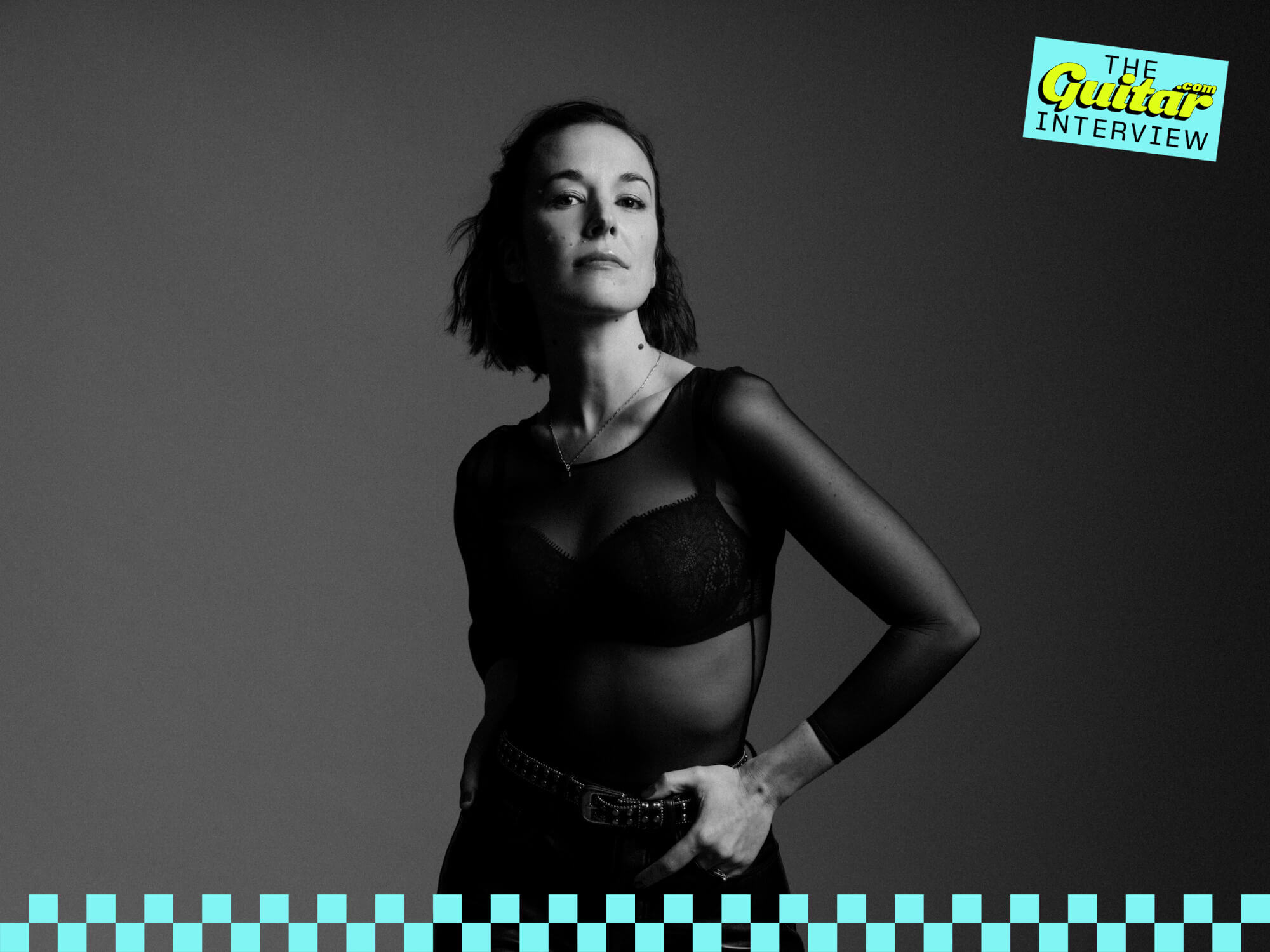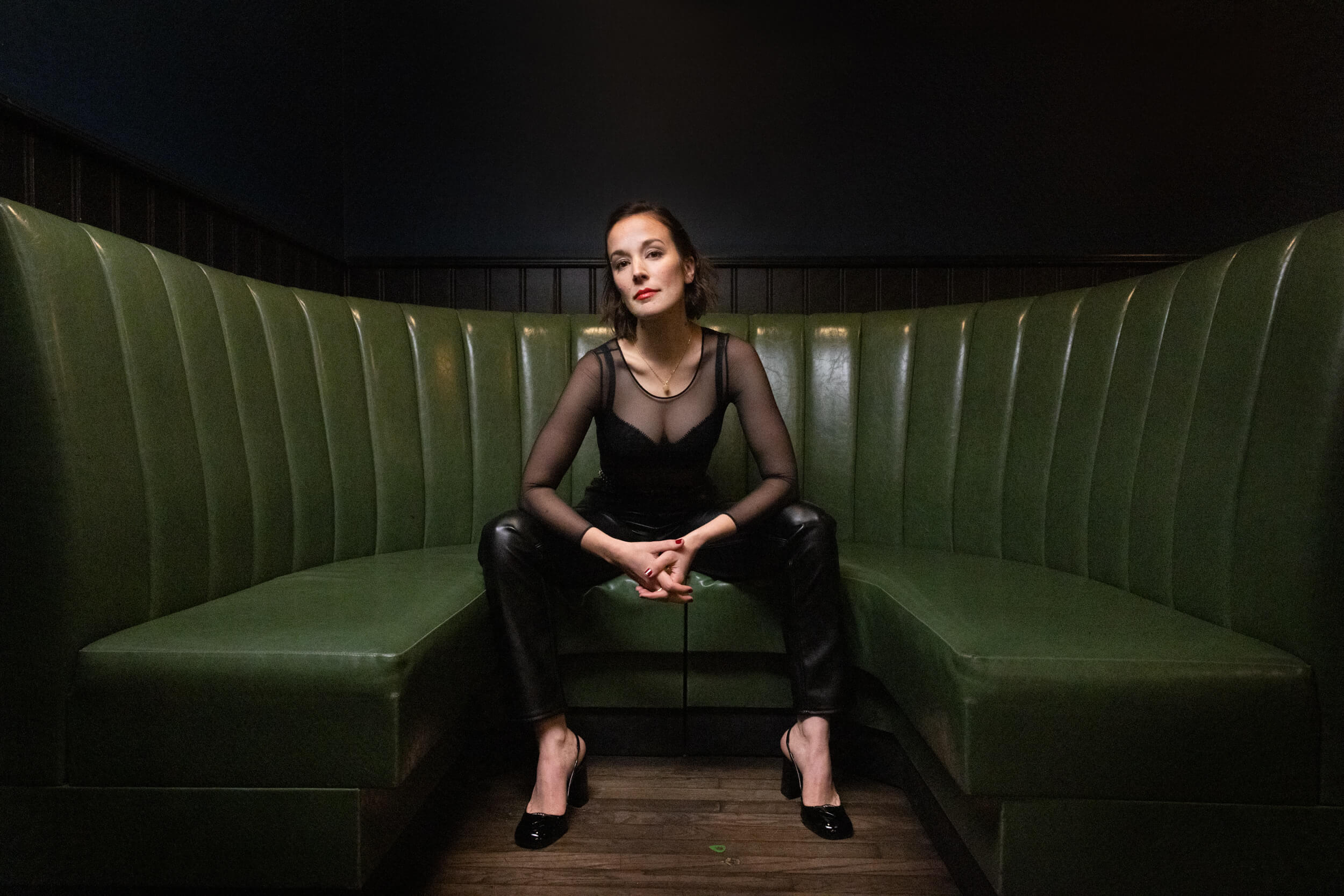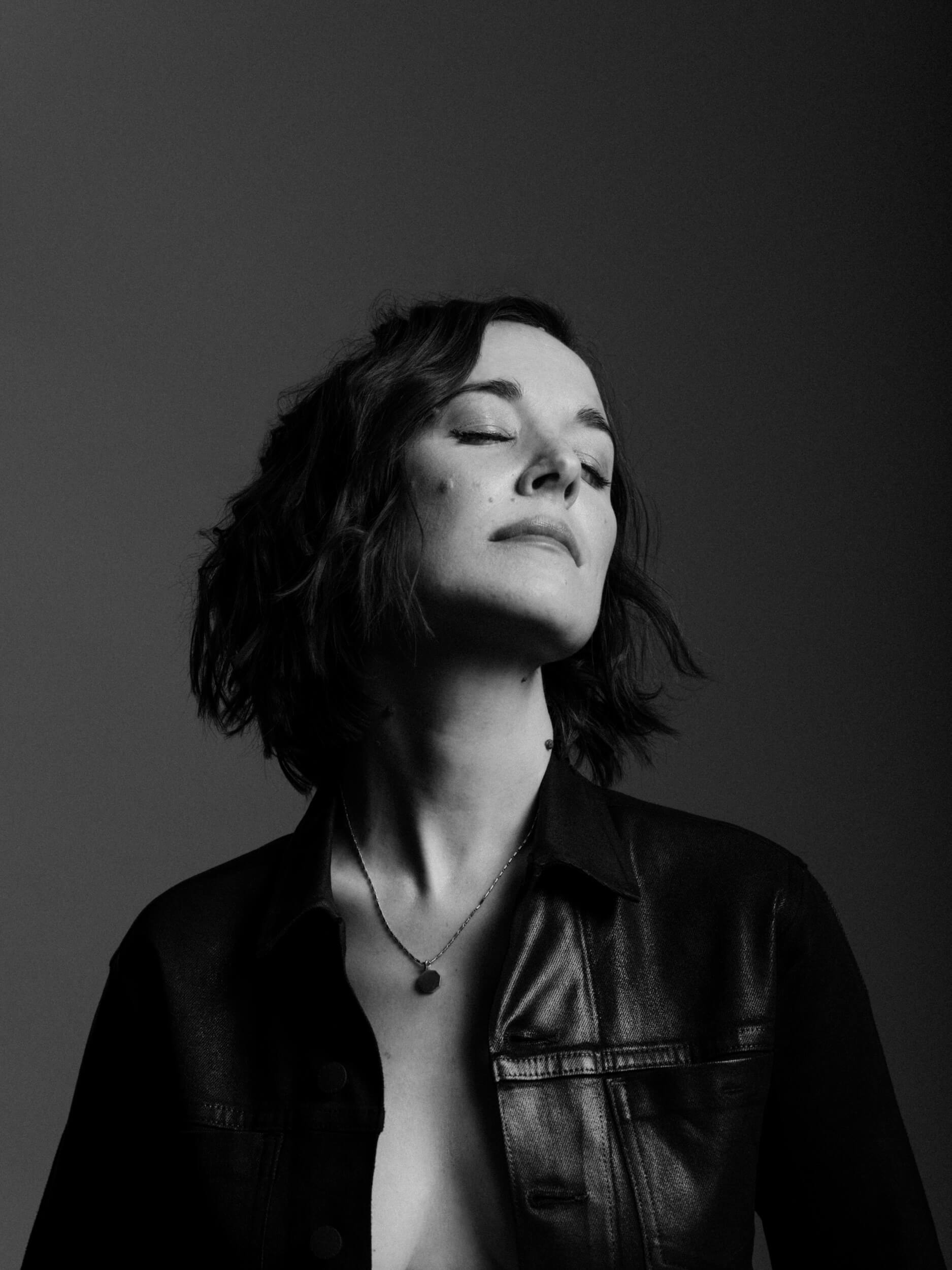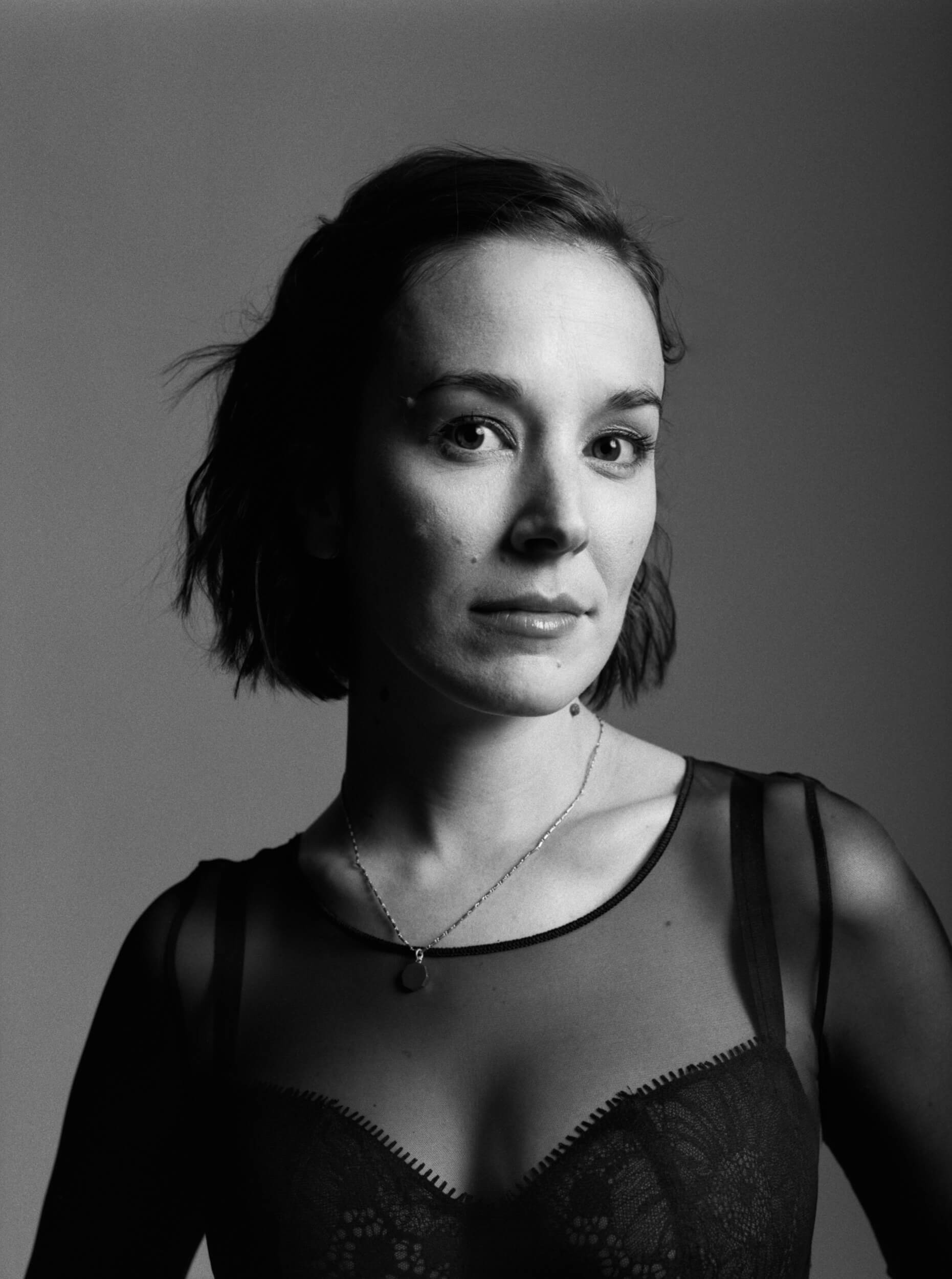“The point is to hear something that’s musical and moves you” Margaret Glaspy on writing songs to a timer on Echo The Diamond
The guitarist on giving herself a 15-minute countdown as an effective writing tool, why riffs are not just meant to be a flex, and how she’s fallen in love with a 70s Tele Deluxe.

Image: Ebru Yildiz
“I was excited to fly the flag for music that has a risk element to it,” Margaret Glaspy says, reflecting on the high-wire recording of her new record Echo The Diamond. Its 10 songs — a mix of vibrant indie-rockers and arresting ballads — were captured direct from the floor by a deliberately under-rehearsed trio, with first takes dominating the process. “It really is about depending on the drummer, the bass player and the guitar player, there’s no safety net,” she observes. “It’s very live. I wanted it to be something that could fall apart at any point.”
- READ MORE: Meet Voice of Baceprot: The fearless metal trio calling for peace whilst making big noise
The drummer here is renowned jazz practitioner David King, of The Bad Plus, and the bassist is Chris Morrissey, a solo artist with similar interests who has also played with Haley Bonar, Andrew Bird, Lucius, and Ben Kweller. The guitar player, of course, is Glaspy, and to anyone familiar with her knotty 2016 debut Emotions and Math the spiky picking and loping progressions could only belong to her.
Echo The Diamond, which was tracked at Reservoir Studios in Manhattan and co-produced by Glaspy and her partner Julian Lage, is almost like documentary filmmaking when it comes to rendering each of its constituent parts. We can hear Glaspy’s hands moving across the fretboard, just as we can sense her sparring with King in real time, and it’s largely thanks to their determination to preserve the slight tension that exists right before a group of musicians get comfortable with one another. “Then, the first time you actually get the arrangement right it’s usually the take that you want to keep,” Glaspy says. “There’s an excitement to it.”
Perhaps as a result, Echo The Diamond feels like a flesh and blood work at a time when that very idea is up for discussion in a musical sense. “I think that, more and more, what I’m excited about is showing humans making music and not trying to take that out of it,” Glaspy says. “You play in your own version of time, you play in your own style, and leave your mark.”
No Retreat

Her own style has been percolating since she was a teenager growing up in Red Bluff, a Northern California town roughly halfway between Sacramento and the border with Oregon. She wrote her first songs at 15 and by the time of Emotions and Math had hit upon a mixture of shapeshifting chord patterns and incisive vocal melodies. Following up her second LP Devotion, which traded out her spidery lead playing for enormous, emotionally-resonant synths, Echo The Diamond’s guitar-led staging could feel like a retreat if it didn’t also fizz and pop with life thanks to its celebration of Glaspy’s idiosyncrasies.
When she leans into a riff, or steers away from one with a surprising hook, as on Echo The Diamond’s opener Act Natural, she does so in a cutting, slightly overdriven manner that is almost confrontational, like she’s prodding the listener in the chest to make sure they’re paying attention. “The point is not to flex in some musical way that I’ve been able to curate, the point is to try to make something you can get lost in, or something that makes you think,” Glaspy says. “The point is to hear something that’s musical and moves you.”
Playing in a trio offers its own special set of challenges, with Glaspy’s own performance history complicating things further. The first thing a guitarist needs to figure out is how they’re going to cover the required bases, and take up enough room, without a rhythm player. Glaspy, though, has spent years performing support shows alone in a guitar-and-voice arrangement. A three-piece verges on gluttonous. “I’m self-sufficient almost to a fault at times,” she observes.
“Solo, you have to pick up even more real estate,” she adds. “If you don’t play it, it’s not going to happen. Earlier on in my journey I was opening for everybody and I would only play by myself. That got me in shape in a certain way. What are the bass notes going to be doing? What’s the rhythm going to be doing? Is there a lead aspect to all this? How am I going to be a good accompaniment for my vocal?
“Playing trio, sometimes I have to almost strip back what I’m doing otherwise I’d be doubling the bass player too much. This is a great format for me — the bass part is covered, we have the drummer covering rhythm, so what is my offering as a guitar player? I thought about that a lot on this record. The trio thing is like walking a tightrope every night.”
Time Bandit

To write these songs Glaspy often set a 15-minute timer, picked up her guitar and got to it, walking herself from chord to chord as the seconds ebbed away. There is a sense that composing in this way set the table for the eventual assembly of Echo The Diamond, with a first-idea-best-idea standard baked in long before anyone started thinking about mic positions or amp tones. “The 15-minute thing, it keeps me in the pocket,” she says. “I have to sit. Usually, if I’m looking at the timer and it’s saying six minutes, or I’m only midway, it means that my brain is trying to get me out. But to build this creative stamina is kind of the point.”
Before the band could hit the studio, though, Glaspy’s established process had to get rocked one more time for good measure. The blow came from a ‘78 Telecaster Deluxe, which entered her life only days prior to sessions beginning. Eventually, the guitar ended up splitting much of the studio graft with her previously go-to Danocaster, a Collings Waterloo acoustic and a Vibro Prince – a Princeton clone built by Magic Amps’ Mike Moody. “I was at TR Crandall in the East Village and Alex [Whitman], one of the owners, came in and said, ‘I feel like you would like this guitar.’ I was only kind of shopping,” Glaspy says with a laugh. “We had some guitars to be worked on, we had another reason to be there, but if I find something I find something. And I found that.
“That’s a new one for me, it’s all humbucking, loud, slightly darker. That guitar has been a cool transition, and now I feel like I can have so much fun playing an amp that’s just dimed. But it’s also a process to reassess your touch, your right hand. It’s actually a case of diminishing returns when you’re digging in further when the amp is cranked that hard. The lighter the touch, it gives you more lifeforce. Even since making the record, I feel like I’m learning more and more about how to finesse that guitar. I think I’m probably playing it even more economically than I was then.”
Opening The Seam

As she prepares to take Echo The Diamond out on the road, the Tele Deluxe is still looming large in Glaspy’s mind. Previously, she has been as stripped-back as possible, often sticking to one guitar live, but for the first time in a while she has a selection headache on her hands. “The sustain is so much heavier than something like the Danocaster, which decays pretty quickly, kind of like an acoustic guitar,” Glaspy says.
“The Tele Deluxe is just like, ‘BRRRRRRRRRRMMMMMM’, you know? It’s like a Les Paul or something, it just stays. It’s like a whole different world. But, at the end of the day, the point is to serve the song. If it’s serving, it’ll stay, and if it’s not, it won’t.”
It’s true that gear doesn’t a great player make, but it can break open certain creative seams that were previously sewn shut. For Glaspy, the Tele Deluxe might unlock that purpose somewhere along the line, having already reshaped her approach to a certain extent. With Echo The Diamond mining her fascination with guitar music, she observes that it could provide a welcome shove further into the world of Sonic Youth-adjacent noise.
“I feel, interestingly, caught between the Danocaster world and the Deluxe world,” she says. “I think that with the Deluxe, there’s something about it that I think is a signal for what’s to come for the next record. I think it’s a nod to some of the music I’m interested in right now, some bands from the 90s that I love. It feels like power is exciting to me, a little more muscle in being able to sustain and get a little loud.”
Margaret Glaspy’s Echo The Diamond is out now through ATO Records.
